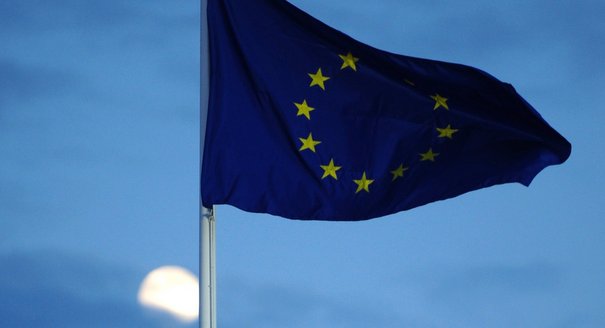There is only one thing in the world that makes us Europeans more nervous than our wobbly currency, and that thing is Asia. These days, few other experiences are as simultaneously disheartening and encouraging as attending a European foreign policy conference that features a panel on Asia. Discouraging because in 90 percent of the cases, Europeans will use the Asia panel to discuss Europe. Encouraging because the topic they are actually discussing on these panels is proof that they are eagerly trying to get it right. They are discussing values.
Take a recent panel at a conference on the future of Europe sponsored by the Munich-based BMW Foundation. Notable scholars from various Asian countries had been invited to discuss the alleged "Pacific Century" and how Europeans should position themselves in that new era. But the Asian guests soon became witnesses to the great European soul search.
Asia "realists" among the Europeans warned against overburdening relations with the coming super powers with futile ramblings about values. Not only would no-one be interested in lectures from a weakened Europe, but, the values themselves no longer held much appeal for many Asians—and Arabs—who had developed a healthy suspicion of Western double standards and weaknesses. "Idealists", on the other hand, proclaimed that the real condescension lay not in declaring Western values universal, but in claiming that they were not made for Asians and Arabs. Realists said that the Arab spring was about jobs. Idealists said that it was also about freedom and human rights. And so on and so forth.
Inadvertently, I believe, the Europeans are on to something. Their values-versus-interests debate demonstrates that they have an instinctive feel for the core of the matter. Not only is the question of how we are being perceived and what our foreign policies should look like buried in this relationship. In it also lie the questions of who we are, what we want, and who we want to be.
Both in theory and in practice values and interests are often difficult to square. Intellectually, many Europeans believe that having interests is somehow a morally questionable position, because it defines our position vis-a-vis others in an egotistic way. Few understand that, in reality, a values-dominated approach is often the much more difficult one to accept for our counterparts. On the other hand, it is equally unclear to many in the debate that, even though disregarding values is often the easier way out, it usually comes at a price. The West can't easily give up values without giving up itself.
The West is the West because of its adherence to core ideals such as human rights, the separation of powers, and the rule of law. They are so hardwired into the DNA of the West that they can't be ignored or violated for long without causing immense self-doubt, irritation, and pain. They are, as the German historian Heinrich-August Winkler has said, the normative project of the West. Take them away, and no West is left to speak of. They are what's needed for our mental survival as a culture, which becomes a problem when they seem to collide with the immediate needs for raw, physical survival—economic interests.
Europeans have to accept that they are double-headed creatures. Their material interests in the world make them a status quo power, interested in stable markets and safe access to them. At the same time, their faith in Western values makes them a revolutionary power, interested in improving the world by advocating regime change and the responsibility to protect. The tension between the two is the human condition of the Western world. And the struggle between the two is eternal and has to be calibrated every single day anew by policy makers, leaders, merchants, scholars, soldiers, and bureaucrats. In this calibrating process, conducted in open, politically competitive societies, lies the power of the Western model.
When debating how to approach Asia, or any other part of the world, for that matter, Europeans—and all Westerners—must basically understand three things, it seems to me.
First, they can't spread their values by force. The best way to spread values is by adhering to them oneself. Second, they can't easily ignore them in their dealings with the world, despite relativist temptations, without undermining themselves. And finally, they need a vibrant, rational, and cool-headed debate about their interests, so that it's never only their values that they bring to the table when they sit down with their counterparts from around the world. For he who has no values is a cripple, but he who has no interests, is a liar.
The Asia panel in Munich was a sign of both strength and weakness. Strength, because the Europeans dedicated themselves and their intellectual earnestness to the difficult task of defining themselves between competing narratives. That was generally perceived as being a good thing, not least by the Asian guests. Weakness because in all that heated debate, they forgot all about Asia—and about their Asian guests. And no matter whether you are an idealist or a realist, there is one thing you absolutely can't be: a bad host.






